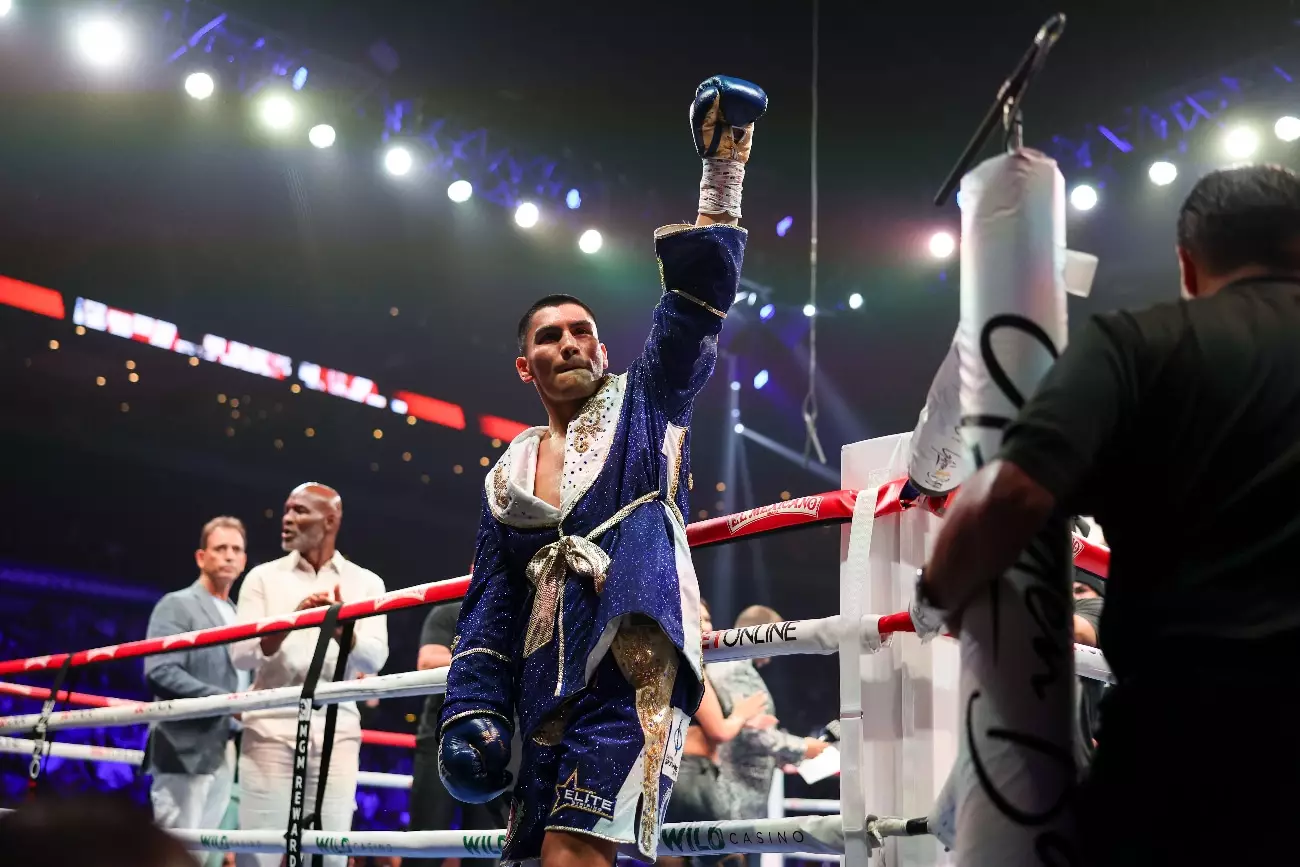The boxing world recently encountered a significant letdown when the highly anticipated matchup between WBC interim junior middleweight champion Vergil Ortiz Jr. and rising star Jaron ‘Boots’ Ennis fell apart. Scheduled for February 22nd in Riyadh, Saudi Arabia, the fight was touted as a potential showcase of two undefeated prospects in the sport. However, negotiations broke down abruptly, leaving fans and stakeholders in disbelief.
While the exact reasons for the breakdown remain unclear, early reports suggest that the weight class demanded by Ennis’ camp played a pivotal role. They pushed for the welterweight limit of 147 pounds, a request Ortiz could not accommodate. Notably, Ortiz boasts an impressive record of 22 wins and 21 knockouts, illustrating his strength within the junior middleweight division. Conversely, Ennis’ strategic maneuvering appears to be influenced by his recent performance against Karen Chukhadzhian, where he struggled despite emerging victorious. His desire to secure an advantageous weight for this clash, given past vulnerabilities, is understandable yet arguably self-serving.
It’s crucial to dissect what this decision signifies for Ennis’ career trajectory. Given the risk posed by facing Ortiz—a fighter noted for his relentless punching power—some might view Ennis as making a pragmatic, if not cowardly, choice. Jumping up two divisions for such a high-stakes fight could have jeopardized his career, especially following a less-than-stellar showing in his previous match. A move aimed at securing a unification bout against lighter-weight champions in the welterweight division reflects a calculated approach to ensure a stable rise in his professional standing.
On the other hand, the fallout leaves Vergil Ortiz in a precarious situation. It raises questions about his next steps after his planned bout fell through. As Dan Rafael noted, efforts are underway to line up another opponent for Ortiz on the same date. The lack of viable contenders willing to step into the ring against him adds a layer of complexity, emphasizing the challenges any boxer faces in continuously securing high-profile fights amidst a crowded market.
The failed Ortiz-Ennis fight highlights a broader issue in boxing: the difficulty of unifying titles across divisions when high stakes and heavy egos are involved. The strategic planning by both fighters reflects the duality of ambition and caution that often governs professional boxing today. As promoters balance the interests of their fighters with market demands, fans are continually left waiting for the bouts they want to witness.
While the boxing community might lament the dissolution of within-ring showdowns that could have enthralled audiences, it ultimately serves to underline the unpredictable nature of the sport. The ongoing negotiations for Ortiz emphasize a still-thriving industry that remains in flux—where ambition must be carefully weighed against the rigors of competitive risk.


Leave a Reply